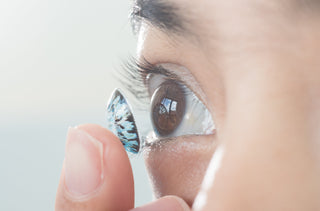There is a lot of information about corneal laser surgery, also known as LASIK surgery. Don't be swayed by what you read on various websites and discussion forums. Let the professionals at IRIS demystify the most common myths concerning LASIK surgery:
Myth 1: LASIK surgery is painful
Thanks to anesthetic eye-numbing drops, almost all patients describe the procedure as painless. However, you may still feel pressure around the eye during the procedure and some lingering discomfort after it.
Myth 2: You will never need glasses again after LASIK
LASIK surgery is effective in correcting vision problems, and you will indeed see an improvement in what you can see without glasses or contact lenses. Although most people have excellent vision after LASIK, glasses may still be required to read or drive at night, and LASIK surgery cannot prevent age-related vision problems.
Myth 3: Everyone is a candidate for LASIK surgery
Contrary to popular belief, not all patients are automatic candidates for laser surgery. Before the preoperative examination, the Ophthalmologist will need to ensure that you meet specific basic requirements by asking you some important questions. Laser surgery may be contraindicated if:
- You have high myopia (-12.00 diopters and above) or high hyperopia (+6.00 diopters and above);
- You have an insufficient corneal thickness for the necessary correction;
- If you are under 18 years of age;
- If your vision has not been stable for a full year;
- If you suffer from an eye disease;
- If you are pregnant or breastfeeding;
- If you have a lazy eye;
- If you have a medical condition such as uncontrolled diabetes.
Myth 4: LASIK surgery can only correct myopia
LASIK surgery can treat various vision defects such as nearsightedness, farsightedness and astigmatism. Talk to your optometrist to find out if you are a good candidate for LASIK surgery
Myth 5: LASIK surgery increases the risk of dry eye
"Dry eye" is a relatively common symptom during the early postoperative period. The symptom gradually improves in most patients, and some even consider it part of the healing process. This problem is usually treated with artificial tears or other treatment options. Patients who tend to have "dry eye" before surgery are more likely to suffer from it post-surgery.
Myth 6: LASIK technology is still evolving; it would be safer to wait for the next generation
While technology never ceases to advance, it does not mean that current methods will have a lower success rate or more complications than new methods. All current laser eye surgery devices have been approved and clinically tested to meet high safety and performance standards. LASIK technology has evolved significantly over the last decade and is unprecedented. The techniques currently used have demonstrated very high success rates.





















































